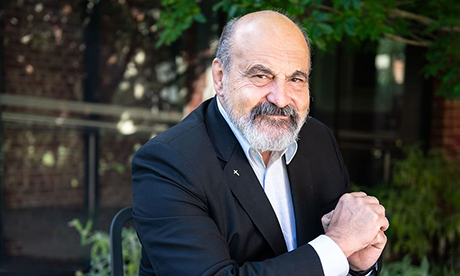Monsignor Tomáš Halík, a prominent Czech theologian, has emphasised the importance of taking seriously those who report having no religious affiliation (‘nones’) and spiritual seekers.
Halik recently visited Sydney and addressed various Catholic audiences, including educators, parish leaders and youth.
He stressed that ‘nones’ and spiritual seekers are a growing demographic in Australia and other parts of the world.
Msgr Halík highlighted the need for evangelisation to be conversational and understanding rather than focused solely on conversion. He argued that “Evangelisation without inculturation is just indoctrination”.
He elaborated that true engagement comes from acknowledging people’s questions, doubts and diverse viewpoints.
Halik contrasted this approach with “evangelical Christian missionaries” and “migrant Catholic priests” who, according to him, failed to connect with the Czech people due to a lack of understanding of their cultural context.
Synodal approach needed
Halík also urged leaders to adopt a more synodal approach, echoing Pope Francis’ call for a church that extends its reach to the peripheries.
He drew connections between the growing number of “nones” and the experience of the Czech Republic post-communism.
In this era, many Czechs were initially hesitant to engage with the Church but became open upon feeling acknowledged and understood. He advocated for the Church to learn from those who are not believers:
“We are all part of this secular society—we cannot create a ghetto or a sect. I tell them we can speak openly about the faith but I don’t have all the answers for all questions.
“Also I think in the church we know many good answers but we have forgotten the questions, and the answers without questions are dead.”
Atheism with compassion
Halík’s message proposes that the church should actively engage with those outside its institutional boundaries. He suggests that spiritual seekers, often found beyond traditional parish structures, have much to offer and can enrich the faith community.
Halík also distinguished between different forms of atheism, emphasising the importance of understanding and empathising with those who have experienced profound pain or disillusionment. He advocates for a compassionate response that acknowledges the complexities of faith and doubt.
Sources
Additional readingNews category: World.




